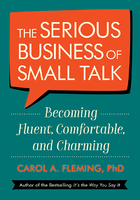Get Started: Unlock Your Potential
The great thing in this world is not so much where we stand, as in what direction we are moving.
OLIVER WENDELL HOLMES
This is a wonderful time to be alive. There are almost unlimited opportunities today for creative and determined people to achieve more of their goals than ever before. Regardless of short-term ups and downs in the economy and in your life, we are entering into an age of peace and prosperity superior to any previous era in human history.
It's Not Where You Start—It's How You Finish
When I was eighteen, I left high school without graduating. My first job was as a dishwasher in the back of a small hotel. From there, I moved on to washing cars and then washing floors with a janitorial service. For the next few years, I drifted and worked at various laboring jobs, earning my living by the sweat of my brow. I worked in sawmills and factories. I worked on farms and ranches. I worked in the tall timber with a chain saw and dug wells when the logging season ended.
I worked as a construction laborer on tall buildings and as a seaman on a Norwegian freighter in the North Atlantic. Often I slept in my car or in cheap rooming houses. When I was twenty-three, I worked as an itinerant farm laborer during the harvest, sleeping on the hay in the farmer's barn and eating with the farmer's family. I was uneducated and unskilled, and at the end of the harvest, I was unemployed once more.
When I could no longer find a laboring job, I got a job in straight commission sales, cold-calling office-to-office and door-to-door. I would often work all day long to make a single sale so that I could pay for my rooming house and have a place to sleep that night. This was not a great start at life.
The Day My Life Changed
Then one day, I took out a piece of paper and wrote down an outrageous goal for myself. It was to earn $1,000 per month in door-to-door and office-to-office selling. I folded up the piece of paper, put it away, and never found it again.
But thirty days later, my entire life had changed. During that time, I discovered a technique for closing sales that tripled my income from the very first day. Meanwhile, the owner of my company sold out to an entrepreneur who had just moved into town. Exactly thirty days after I had written down my goal, the new owner took me aside and offered me $1,000 per month to head up the sales force and teach the other salespeople what I was doing that enabled me to sell so much more than anyone else. I accepted his offer, and from that day forward, my life was never the same.
Within eighteen months, I had moved from that job to another and then to another. I went from personal selling to becoming a sales manager with people selling for me. In a new business, I recruited and built a ninety-five-person sales force. I went literally from worrying about my next meal to walking around with a pocket full of $20 bills.
I began teaching my salespeople how to write out their goals and how to sell more effectively. In almost no time at all, they increased their incomes as much as tenfold. Today, many of them are millionaires and multimillionaires.
Life Goes Up and Down
I have to admit that since those days in my midtwenties, my life has not been a smooth series of upward steps. It has included many ups and downs, marked by occasional successes and temporary failures. I have traveled, lived, and worked in more than ninety countries, learning French, German, and Spanish along the way and working in twenty-two different fields.
As the result of inexperience and sometimes sheer stupidity, I have spent or lost everything I made and had to start over again—several times. Whenever this happened, I would begin by sitting down with a piece of paper and laying out a new set of goals for myself, using the methods that I'll explain in the pages ahead.
After several years of hit-and-miss goal setting and goal achieving, I finally decided to collect everything I had learned into a single system. By assembling these ideas and strategies in one place, I developed a goal-setting methodology and process, with a beginning, middle, and end, and began to follow it every day.
Within one year, my life had changed once more. In January of that year, I was living in a rented apartment with rented furniture. I was $35,000 in debt and driving a used car that wasn't paid for. By December, I was living in my own $100,000 condominium. I owned a new Mercedes, had paid off all my debts, and had $50,000 in the bank.
Then I really got serious about success. I realized that goal setting was incredibly powerful. I invested hundreds and then thousands of hours reading and researching goal setting and goal achieving, synthesizing the best ideas I could find into a complete process that worked with incredible effectiveness.
Anyone Can Do It
Some years later, I began audiotaping and videotaping my workshops and seminars so that others could use them. We have now trained hundreds of thousands of people in these principles, in multiple languages, all over the world.
What I found was that these ideas work everywhere, for everyone, in virtually every country, no matter what your education, experience, or background may be when you begin.
Best of all, these ideas have made it possible for me and many thousands of others to take complete control over our lives. The regular and systematic practice of goal setting has taken us from poverty to prosperity, from frustration to fulfillment, from underachievement to success and satisfaction. This system will do the same for you.
Create Your Own World
Perhaps the greatest discovery in human history is the power of your mind to create almost every aspect of your life. Everything you see around you in the man-made world began as a thought or an idea in the mind of a single person before it was translated into reality. Everything in your life started as a thought, a wish, a hope, or a dream, either in your mind or in the mind of someone else. Your thoughts are creative. Your thoughts form and shape your world and everything that happens to you.
The great summary statement of all religions, philosophies, metaphysics, psychology, and success is this: You become what you think about most of the time. Your outer world ultimately becomes a reflection of your inner world. Your outer world of experience mirrors back to you what you think about most of the time. Whatever you think about continuously emerges in your reality.
Many thousands of successful people have been asked what they think about most of the time. The most common answer given by successful people is that they think about what they want—and how to get it—most of the time.
Unsuccessful, unhappy people think and talk about what they don't want most of the time. They talk about their problems and worries and who is to blame for their situation most of the time. But successful people keep their thoughts and conversations focused on their most intensely desired goals. They think and talk about what they want most of the time.
Living without clear goals is like driving in a thick fog. No matter how powerful or well engineered your car, you drive slowly, hesitantly, making little progress on even the smoothest road. Deciding upon your goals clears the fog immediately and allows you to focus and channel your energies and abilities toward what you really want. Clear goals enable you to step on the accelerator of your own life and race ahead rapidly toward achieving more of what you want in life.
Your Automatic Goal-Seeking Function
Imagine this exercise: You take a homing pigeon out of its roost, put it in a cage, cover the cage with a blanket, put the cage in a box, and then place the box into a closed truck cab. You can then drive a thousand miles in any direction. If you then open the truck cab, take out the box, take off the blanket, and let the homing pigeon out of the cage, the homing pigeon will fly up into the air, circle three times, and then fly unerringly back to its home roost a thousand miles away. No other creature on earth has this incredible cybernetic, goal-seeking function—except for you.
You have the same goal-achieving ability as the homing pigeon but with one marvelous addition. When you are absolutely clear about your goal, you do not even have to know how to achieve it. By simply deciding exactly what you want, you will begin to move unerringly toward your goal, and your goal will start to move unerringly toward you. At exactly the right time and in exactly the right place, you and the goal will meet.
Because of this incredible cybernetic mechanism located deep within your mind, you almost always achieve your goals, whatever they are. If your goal is to get home at night and watch television, you will almost certainly achieve it. If your goal is to create a wonderful life full of health, happiness, and prosperity, you will achieve that as well. Like a computer, your goal-seeking mechanism is nonjudgmental. It works automatically and continuously to bring you what you want, regardless of what you program into it.
Nature doesn't care about the size of your goals. If you set little goals, your automatic goal-achieving mechanism will enable you to achieve little goals. If you set large goals, this natural capability will enable you to achieve large goals. The size, scope, and detail of the goals you choose to think about most of the time are completely up to you.
Why People Don't Set Goals
Here is a good question: If goal achievement is automatic, why do so few people have clear, written, measurable, time-bounded goals that they work toward each day? This is one of the great mysteries of life. I believe there are four reasons why people don't set goals.
They Think Goals Aren't Important
First, most people don't realize the importance of goals. If you grow up in a home where no one has goals or you socialize with a group where goals are neither discussed nor valued, you can very easily reach adulthood without knowing that your ability to set and achieve goals will have more of an effect on your life than any other skill. Look around you. How many of your friends or family members are clear and committed to their goals?
They Don't Know How
The second reason that people don't have goals is because they don't know how to set them in the first place. Even worse, many people think that they already have goals. Alas! What they really have is a series of wishes or dreams, like “Be happy” or “Make a lot of money” or “Have a nice family life.”
But these are not goals at all. They are merely fantasies that are common to everyone. A goal, however, is something distinctly different from a wish. It is clear, written, and specific. It can be quickly and easily described to another person. You can measure it, and you know when you have achieved it or not.
It is possible to earn an advanced degree at a leading university without ever receiving one hour of instruction on goal setting. It is almost as if the people who determine the educational content of our schools and universities are completely blind to the importance of goal setting in achieving success later in life. And of course, if you never hear about goals until you are an adult, as happened to me, you will have no idea how important they are to everything you do.
They Have a Fear of Failure
The third reason that people don't set goals is because of the fear of failure. Failure hurts. It is emotionally and often financially painful and distressing. All of us have experienced failure from time to time. Each time, we resolve to be more careful and avoid failure in the future. Many people then make the mistake of unconsciously sabotaging themselves by not setting any goals at which they might fail. They end up going through life functioning at far lower levels than are truly possible for them.
They Have a Fear of Rejection
The fourth reason that people don't set goals is because of the fear of rejection. People are afraid that if they set a goal and are not successful, others will criticize or ridicule them. This is one of the reasons why you should keep your goals confidential when you begin to set goals. Don't tell anyone. Let others see what you have accomplished, but don't tell them in advance. What they don't know can't hurt you.
Join the Top 3 Percent
Mark McCormack, in his book What They Don't Teach You at Harvard Business School, tells of a Harvard study conducted between 1979 and 1989. In 1979, the graduates of the MBA program at Harvard were asked, “Have you set clear, written goals for your future and made plans to accomplish them?”
It turned out that only 3 percent of the graduates had written goals and plans. Thirteen percent had goals, but they were not in writing. Fully 84 percent had no specific goals at all, aside from getting out of school and enjoying the summer.
Ten years later, in 1989, the researchers interviewed the members of that class again. They found that the 13 percent who had goals that were not in writing were earning, on average, twice as much as the 84 percent of students who had no goals at all. But most surprisingly, they found that the 3 percent of graduates who had clear, written goals when they left Harvard were earning, on average, ten times as much as the other 97 percent of graduates all together. The only difference between the groups was the clarity of the goals they had for themselves when they graduated.
Happiness Requires Goals
Earl Nightingale once wrote, “Happiness is the progressive realization of a worthy ideal, or goal.”
You feel truly happy only when you are making progress, step-by-step, toward something that is important to you. Viktor Frankl, the founder of Logotherapy, wrote that the greatest need of human beings is for a sense of meaning and purpose in life, for a goal to work toward.
Goals give you that sense of meaning and purpose, a clear sense of direction. As you move toward your goals you feel happier and stronger. You feel more energized and effective. You feel more competent and confident in yourself and your abilities. Every step you take toward your goals increases your belief that you can set and achieve even bigger goals in the future.
More people today fear change and worry about the future than at any other time in our history. One of the great benefits of goal setting is that goals enable you to control the direction of change in your life. Goals enable you to ensure that the changes in your life are largely self-determined and self-directed. Goals enable you to instill meaning and purpose into everything you do.
One of the most important teachings of Aristotle, the Greek philosopher, was that man is a teleological organism. The Greek word teleos means “goals” or “purpose.” Aristotle concluded that all human action is purposeful in some way. You are happy only when you are doing something that is moving you toward something that you want. The great questions then become: What are your goals? What purposes are you aiming at? Where do you want to end up at the end of the day?
You Hold the Key
Setting goals, working toward them day by day, and ultimately achieving them is the key to happiness in life. Goal setting is so powerful that the very act of thinking about your goals makes you happy, even before you have taken the first step toward achieving them.
To unlock and unleash your full potential, you should make a habit of daily goal setting and achieving for the rest of your life. You should develop a laser-like focus so that you are always thinking and talking about what you want rather than what you don't want. You must resolve, from this moment forward, to become a goal-seeking organism, like a guided missile or a homing pigeon, moving unerringly toward the goals that are important to you.
There is no greater guarantee of a long, happy, healthy, and prosperous life than for you to be continually working on being, having, and achieving more and more of the things you really want. Clear goals enable you to release your full potential for personal and professional success. Goals enable you to overcome any obstacle and to make your future achievement unlimited.
GET STARTED: UNLOCK YOUR POTENTIAL
1. Imagine that you have the inborn ability to achieve any goal you could ever set for yourself. What do you really want to be, have, and do?
2. Identify the activities that give you your greatest sense of meaning and purpose in life. How could you do more of them?
3. Look at your personal and work life today, and identify how your own thinking has created your world. What should you or could you change?
4. Resolve today to think and talk only about the things you want in life and refuse to talk about the things you don't want.
5. Determine the price you will have to pay to achieve the goals that are most important to you, and then resolve to pay that price, starting today.
6. Imagine that you were absolutely guaranteed of success in achieving your goals and that you had no fears at all. What goals would you set for yourself?
7. What one action should you take immediately as the result of your answers to the above questions?















